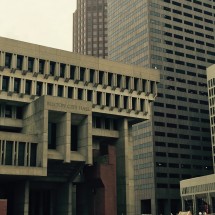Law Offices of John P. Connell, P.C.: Any establishment possessing live entertainment, such as karaoke, dance floors or DJs, or background entertainment, such as TVs, coin operated games or radios, must obtain entertainment licenses through a local licensing authority. In the City of Boston, the local authority is the Mayor’s Office of Consumer Affairs and Licensing (“Mayor’s Office”). To aid in the process of acquiring an entertainment license, the Mayor’s Office has issued “Rules and Regulations of the Mayor’s Licensing Division.” These rules introduce the entertainment license application procedure and promote compliance with the governing license laws: M.G.L. c. 140, 177A, 181 and 183A.
General Guidelines
The Mayor’s Office holds the authority and discretion to “require a licensee to appear before it for a meeting to address general questions about the licensed operation.” Therefore, it is crucial to be honest in all statements made on your license application and to oversee that your establishment’s conduct is consistent with those statements.
The following are a sample of some rules the Mayor’s Licensing Division has issued that licensees should be aware of and perhaps might not be:
1. A current list of all employees shall be available upon request of authorized agents of this Division.
2. The Licensee shall allow any person designated by the Director including the Boston Police to enter, to inspect, to view any exhibition or show, and to participate in any Amusement.
3. The licensee shall hire at his own expense a police and fire detail as the Mayor shall require.
4. The licensee shall conform to the applicable provisions of the Boston Zoning Code and State Building Code, obtaining a Certificate of Use and Occupancy from the Inspectional Services Commissioner if so required by these codes.
5. No physical renovations shall be made unless a plan is submitted and approved by the Licensing Division.
6. There shall be no disorder, indecency, prostitution, lewdness or illegal gambling on the licensed premises or any premises connected therein by an interior communication.
7. No device or electronic equipment shall be utilized by any licensed premises for the purpose of signaling employees that agents of the Licensing Division are present.
8. Licensees must provide reasonable cooperation to police officers and other authorized agents of the Licensing Division in the performance of their duties.
9. Licensees are to call for police assistance where necessary to alert police to unlawful activities, to protect patrons and members of the public from disruptive incidents, to clear the premises and the vicinity from unruly persons where needed, to provide assistance to injured persons, and on other occasions where police assistance is needed to preserve the public safety and order.
10. Persons waiting outside the licensee’s establishment in order to enter must be organized in an orderly line that is supervised and monitored by the licensee.
11. Any admission fee must be clearly and conspicuously posted. Patrons must be given receipts upon payment of admission fee.
12. The licensee shall not allow a child under 14 to be admitted or have access to the entertainment between 6:00 pm and 6:00 am on any day, or during the child’s school hours on school days, unless said child is accompanied by an adult.
13. Licensees shall immediately notify the Division of any court proceedings which may affect the status of this license.
14. Noise from said entertainment shall be inaudible from any public way or from any abutting premises if maintained within a building, and shall be inaudible at a distance of 100 yards if maintained outside. All amplifiers shall face the licensed premises and not the street.
15. The entertainment and dancing must be confined to the designated place provided for the purpose, and approved by the Division pursuant to letter of conditions.
There are numerous other related rules that the licensee should become familiar with by obtaining the complete Rules and Regulations of the Mayor’s Licensing Division.

